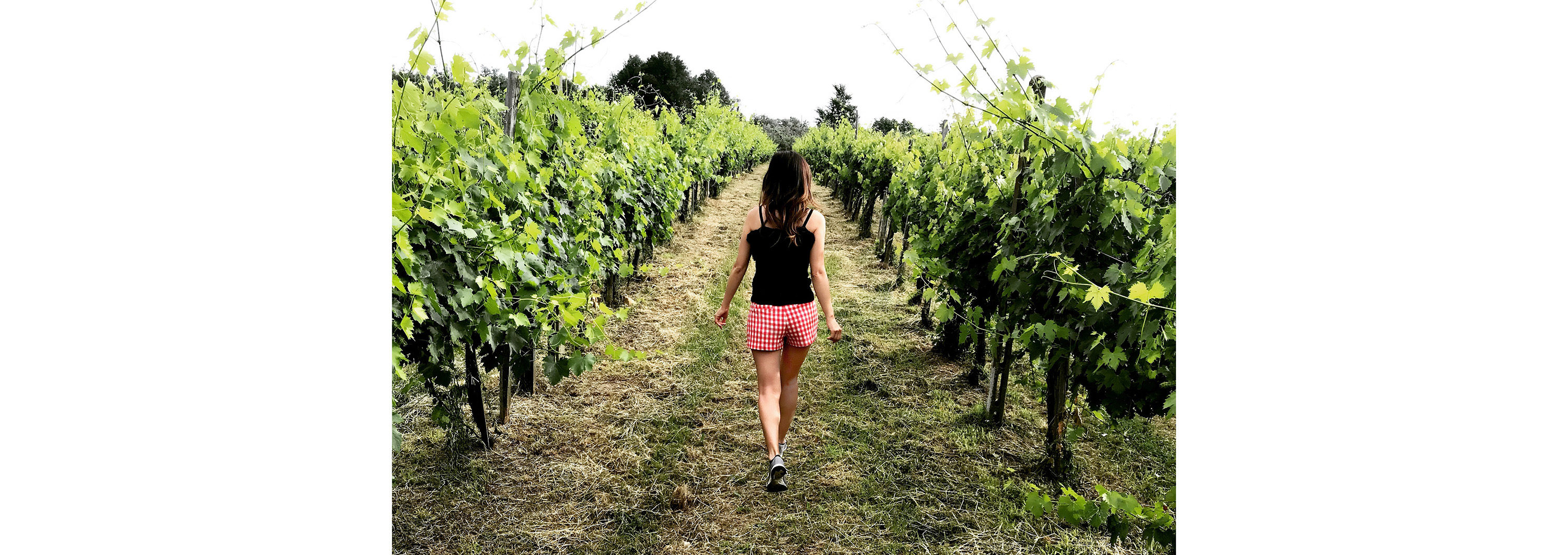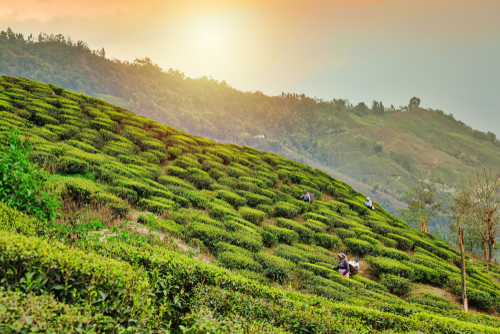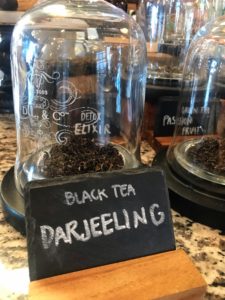A conversation with a friend the other day reminded me of my long-time favorite tea, Darjeeling. Why it hasn’t made a regular appearance in my cup as of late is something of a mystery, but I’ve been enamored with this tea for over 25 years.
I came across Darjeeling at Rosallie, a French café in Las Vegas this week, and as I sipped it on that cold, windy morning feeling utterly content, I thought about owner Jonathan Pluvinet and how fortunate we are to have Rosallie in Las Vegas.
Though now living in Florida with his second Rosallie in Winter Garden, his Las Vegas location has become quite a regular spot for me.

I come here for his incredibly delicious treats of buttery bliss, from croissants and fruit tartes, macarons and quiches, to my favorite palmier cookies and of course, the signature almond croissant which pairs perfectly with a latte … or tea.
“Darjeeling is definitely the most refined tea we have,” says Jonathan. “It’s a second flush Darjeeling harvested in June and embodies aromatic deep earthen leaves that brew a gentle golden amber. It’s so gentle and smooth, full-bodied and subtly sweet.”
I’ve always been drawn to the delicate aromas and flavors of this tea for years. It’s softer and lighter than the more assertive, tannic teas, yet offers layers of complexity and a personality that I can really engage in.
The subtle sweetness reminds of the flavors of grapes, which Darjeeling, especially second flush, is known for. Delightfully reminiscent of Muscat Blanc à Petits Grains, together with the high altitude Himalayan mountain air from where it is grown, in a way it it tastes more like wine than other teas out there. If there is any tea for the wine lover, it’s got to be Darjeeling!
Sometimes referred to as the “Champagne of teas,” it comes from gardens rising upwards of 4,000 feet above sea level in Darjeeling, India. The bushes are nurtured and cared by incessant showers of rainfall and kissed by a glow of pleasant sunshine.
The leaves are picked by hand on some of the steepest and highest mountains in the world. Only the tender bud and the finest two leaves are carefully plucked to capture the unique flavor, but this process results in an extremely low yield. Thankfully, integrity is kept by most farmers who refuse to succumb to the temptation of enhancing the yield at the expense of quality.
Humid, moisture-laden days are met by cold and dry windy nights, with relatively low temperature prevailing through out the year. The unique climate contributes to the distinct aroma and flavor formation.
Drink Darjeeling without any blends to experience its real character. Every authentic Darjeeling has a name associated with the tea estate it is produced in. Furthermore, Darjeeling is known as “single estate teas” meaning teas from a singular, site-specific garden, reflecting the distinct characteristic indicative of its terroir.
Sounding like a wine lover’s tea more and more…


